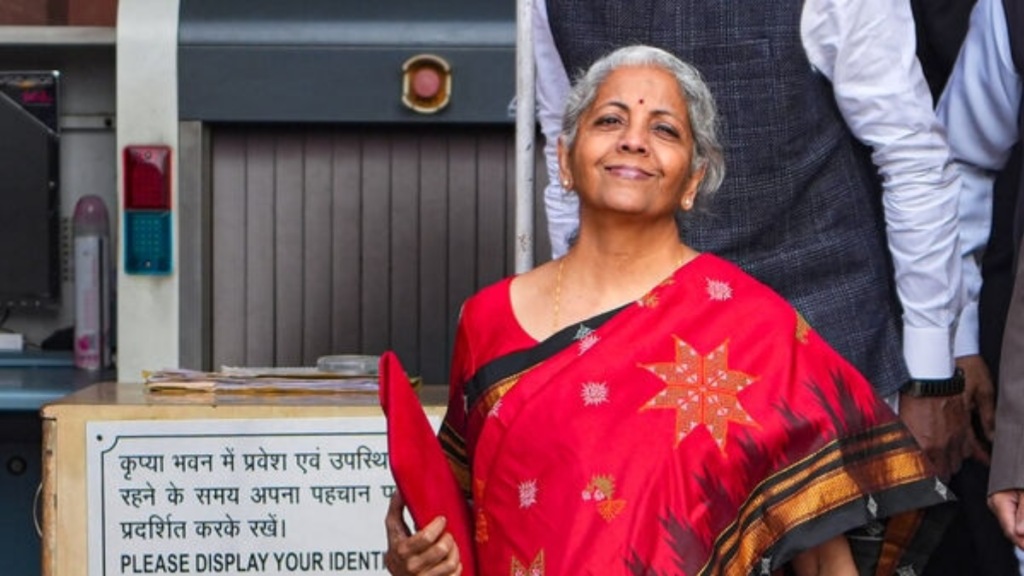The Indian Space Association (ISpA), representing the country’s private space companies, has submitted a series of recommendations for the Union Budget 2024-25. These suggestions aim to enhance the financial and overall health of India’s burgeoning space industry. The focus is on providing financial incentives and strategic government support to propel the sector forward.
Key Recommendations
1. Expansion of GST Exemptions
ISpA advocates for expanding the GST exemption currently applied to satellite launch services. They suggest including other critical components such as ground systems and launch vehicles. The exemption reduces GST costs on satellite launch services but does not address the input tax credit on procurement of goods and services. ISpA recommends similar exemptions for procuring key goods and services for satellite launch services. This approach would reduce GST input tax credit costs and benefit the entire supply chain.
2. Tax Holidays and Custom-Duty Exemptions
With space industrial parks planned across various states and significant greenfield investments by both legacy and start-up non-government entities, ISpA urges the government to introduce tax holidays and exemptions for space sector firms. Additionally, they propose concessions on customs duties for notified imports to alleviate the financial burden on these companies.
3. Reduction of Tax-rate on Interest on Foreign Borrowings
Given the capital-intensive nature of the space industry, involving activities like research and development, satellite manufacturing, and constructing satellite launch and earth stations, ISpA recommends lowering the tax rate on interest on foreign borrowings to 5%. This measure would facilitate easier access to necessary foreign funding at cost-effective interest rates for project financing.
4. Reduced Withholding Tax for Satellite Sector
The current withholding tax rate on payments to Indian companies providing satellite services is set at 10 percent under section 194J of the Income-tax Act, 1961. ISpA recommends reducing this rate to 2%, considering the low-profit margins in the satellite sector. This measure would enhance the profitability and sustainability of satellite operators.
5. Extension of PLI to Space-grade Components
Ensuring self-reliance is a key objective behind opening the sector for private participation. ISpA draws inspiration from the PLI scheme for drones and suggests introducing a similar scheme for space-grade components. This would incentivize domestic manufacturing under the ‘Make in India’ vision, bolster the supply chain for space-related technologies, and attract investment by providing financial incentives to manufacturers based on their output.
6. Government Commitment to Consume and Adapt NewSpace Sector
ISpA calls for a commitment from the government to procure and adopt space technology solutions across various governance areas, such as agriculture, disaster management, infrastructure planning and development monitoring, urban development, and remote area connectivity. This would provide a stable market for space tech firms and enhance the efficiency of public services.
In line with this, a Digital Public Infrastructure (DPI) and Digital Public Goods (DPG) approach for Earth observation-based geospatial analytics and insights can unlock value and innovation for several stakeholders beyond the space sector. A budget announcement for a DPI/DPG for earth observation would pave the way for democratizing access to space technology.
7. Reasonable Spectrum Usage Charges
Under the New Telecommunications Act 2023, spectrum for satellite applications is allocated through an administrative method. ISpA recommends reasonable Spectrum Usage Charges (SUC) as a percentage of Adjusted Gross Revenue (AGR) for satellite services allocated non-auctioned spectrum under the new act. This approach would ensure that satellite operators are not overburdened with excessive fees.
8. Depreciation on One-Time Fees and Licence Charges for Satellite Operators
Satellite service providers in India may need to pay a one-time licence or spectrum fee to secure the licence to deliver satellite services and an annual licence fee based on revenue. ISpA proposes allowing 25% depreciation of the one-time fee and treating the annual fee as revenue expenditure. This approach would lower taxable profits and optimize the tax impact, supporting business operations.
A Vision for Growth
Lt Gen AK Bhatt (Retd.), Director General of ISpA, stated, “We believe that India’s focus on innovation and favourable regulatory environment will draw significant foreign direct investment, boosting economic growth and unlock the $44 billion opportunity, driving unprecedented economic progress and prosperity. With the implementation of the above reforms and initiatives, ISpA expects that enhanced investment and technological advancements will drive innovation, fostering a robust ecosystem for startups and established companies of the space industry.”
He emphasized the importance of the prompt implementation of the Space Activities Act to address legal and standards-related issues, providing a clear regulatory framework for the industry. With recent government reforms and initiatives and the guidelines for implementing the Indian Space Policy 2023 from IN-SPACe, the space sector is at a critical juncture towards becoming a global space power in the coming years.
ISpA’s comprehensive recommendations for the Union Budget 2024-25 reflect the potential for transformative growth in India’s space industry. By addressing financial, regulatory, and operational challenges, these measures aim to create a robust and competitive space sector that contributes significantly to the nation’s economy and technological advancement.

